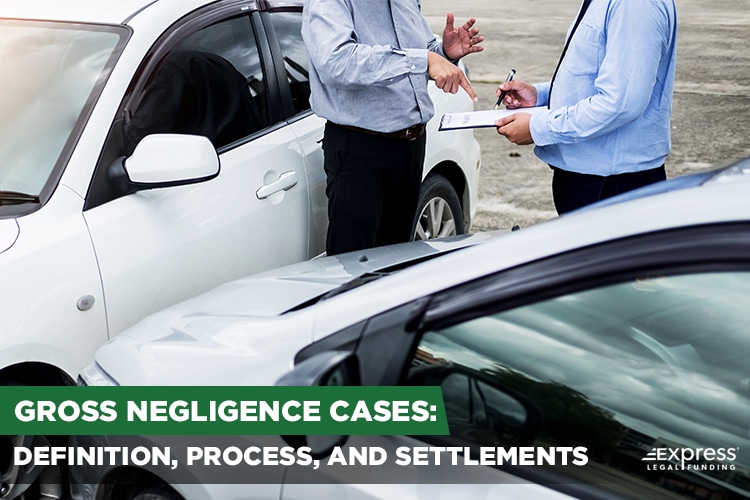
We live in a dangerous world. It’s a world where corporations sometimes seek profits over safety, and people can act recklessly.
Whether you are an employee working for a company or a private citizen on your way to the grocery store, we all have a duty of care to help protect society and avoid being negligent.
While this negligence might not present an issue for everyone, there are situations where an inability or unwillingness to consider the safety around you can have serious consequences.
Negligence has become a growing concern in the United States, primarily due to corporate negligence. The problem with negligence is that not everyone knows it exists or what it means to them.
Large-scale examples of negligence have led to injuries and even death. These details are critical since understanding negligence is the first step to understanding what you can do when you are the victim.
Dealing with negligence can be challenging, but the injured party is often entitled to act against the responsible party to recover daños.
The question for this article: what are the facts you need to know regarding negligence vs. gross negligence for daños personales cases?
What is Gross Negligence?
Negligence Definition: “Negligencia,” often called ordinary negligence, is a legal term often used in personal injury law settings because it is the most common causa de la acción (the reason you can sue someone) for tort lawsuits.
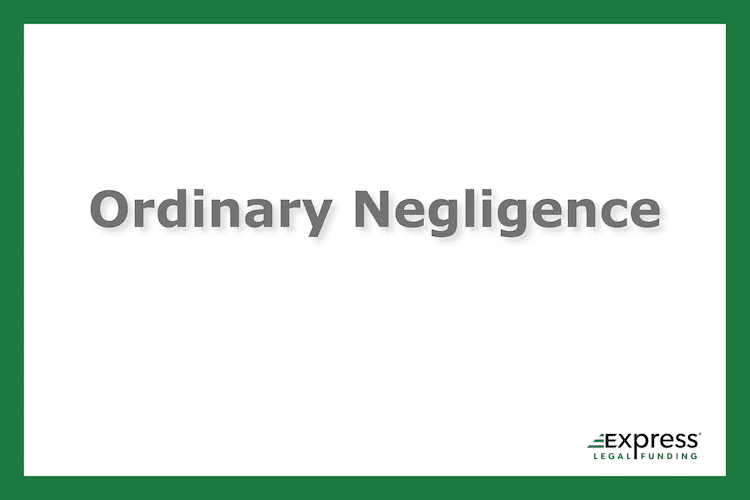
Negligence involves a person or group failing to uphold their duty of reasonable care, which leads them to cause injuries to someone else or damage someone else’s property.
The more extreme and severe type of negligent behavior is called negligencia grave. While similar to negligence, it has significant differences and implications.
Gross Negligence Definition:
Gross negligence is any situation where one person or organization shows a reckless disregard for the safety or lives of others.
The circumstances are generally very extreme for an incident to qualify as gross negligence, meaning it is challenging for a situation to be identified as a case of gross negligence and is uncommon.
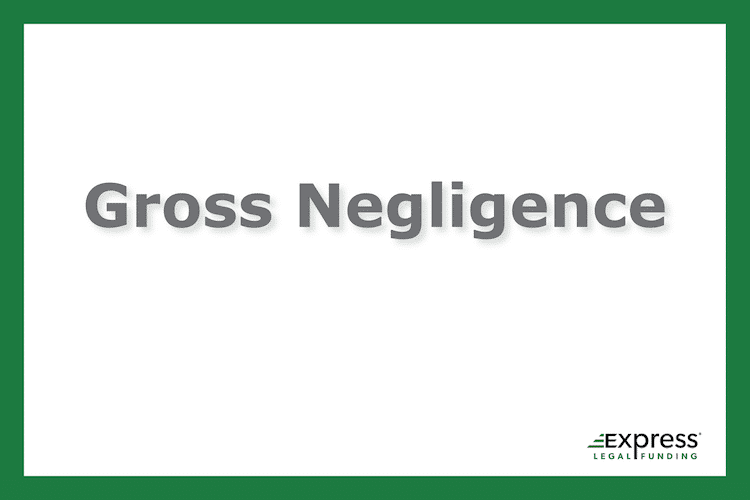
It takes a party to significantly disregard their duty of care to qualify, and it can easily be misidentified as ordinary negligence when it happens.
Examples of negligence vs. gross negligence would be as follows:
- Negligencia: For example, someone named John is driving toward an intersection with a flashing red light (Which has the same rules as the “STOP” sign). John is not first in line as a vehicle is in front of him, waiting to cross. As John approaches, he should be slowing down.
However, he gets distracted by a ding on his phone and glances down to read a text message on his phone; John forgets to stop causing him to rear-end the car in front of him and causing an accident.
This is an example of negligence on John’s part as he was driving distracted. He did not uphold his duty of care, which makes him at fault for the car crash. When someone drives distracted by choosing to take their eyes off the road, they are being negligent and are failing to maintain the duty of care to keep the road safe for other drivers.
Another example is someone wearing headphones while driving. Although it is legal to wear headphones while driving in most states, it can be used as a contributing factor to the negligent act of driving distracted. - Negligencia grave: In this example, everything is the same for John as in the previous scenario driving toward the same intersection; however, this time, John is driving way over the speed limit, going 75 miles per hour when the speed limit is 35. Like before, he is looking at his phone instead of paying attention to the road and collides with the vehicle ahead of him.
The main difference that makes this scenario gross negligence is that John caused a car accident due to his going 40 miles over the speed limit, which caused him to hit the other car with more force and cause more damage than if he was following the law and going the speed limit.
When someone drives recklessly and causes a car accident by going way over the speed limit or is a drunk driver over the BAC limit, they can qualify as having gross negligence.
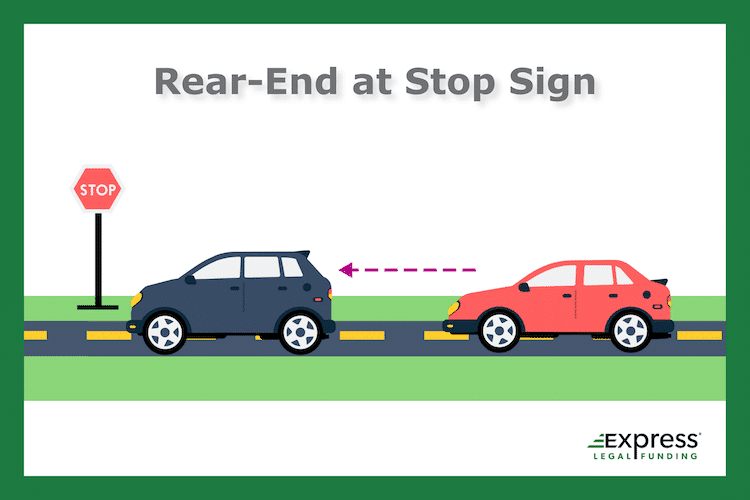
The distinguishing factor between negligence and gross negligence is that the negligent party was consciously doing something that enhanced the danger involved.
Speeding is a widespread example because of how common of an issue it is for those driving on the road. Still, speeding is only one example of gross negligence.
Incidents that cause significant damage and harm to the victim by the at-fault party being reckless can happen in numerous ways.
The level of negligence in personal injury cases can rapidly increase by your willful disregard for the safety of those around you, which worsens an accident or incident.

Gross Negligence on the Part of a Company
Does the same hold true for companies? A company is fully capable of having gross negligence (often on a larger scale and part of a product liability or mass tort lawsuit):
- Negligencia: For example, a technology company releases a new laptop with a hardware defect that causes the battery to ignite and destroy the computer when you use it for too long, forcing a product safety recall. This would be an issue of negligence if the problem with the laptop battery could have been detected with more rigorous quality assurance testing by the company but was overlooked.
- Negligencia grave: Similar to the previous example, the same company releases the same laptop with the same flaw. However, this time the company has gross negligence because it knew about the product defect ahead of time, chose to release it to the public anyway and justified it due to the loss of profits the product recall would cause.
For our example of a laptop battery lighting on fire, the fundamental concept of when it is and is not gross negligence is whether there was willful misconduct on the company’s part.
Whether you are dealing with negligence or gross negligence concerning an accident, there is a good chance you will need to file a personal injury lawsuit to pay for medical expenses.
By filing a personal injury claim for harm caused to you by someone who is grossly negligent, you sue them and get compensation for your lost wages and medical bills, which is crucial for building the value of gross negligence cases.
Even with the ability to bring a lawsuit, the legal process for negligent cases is complicated. It’s helpful to know what you can expect ahead of time. That is where the following legal concepts come in.
Can You Sue For Gross Negligence?
Yes, a victim who suffered harm due to gross negligence can sue by filing a lawsuit and be awarded punitive damages in addition to compensation for the injuries and non-economic damages they suffered.
Punitive damages are meant to mitigate the chance of future occurrences and not act as funds to compensate the victim.
Gross negligence is a serious cause of action that can lead to criminal charges against the perpetrator. Victims of gross negligence are not involved in any criminal proceedings beyond potentially testifying.
However, they can bring civil lawsuits concerning their loss resulting from the criminal act. Gross negligence in civil lawsuits is the focus of this article.
As an injured victim, your interests lie with the civil side since you would file a private claim against the negligent party. Civil law is expansive and has multiple claims that fit different circumstances, which include personal injury.
When filing a lawsuit due to gross negligence, one or more of the three major lawsuit types will likely apply to your case:
Daños corporales
Daños corporales: The most common type of claim for gross negligence is personal injury, primarily because most cases of gross negligence cause injuries. Even if there is another reason for the claim, you will likely be filing a personal injury claim, as well.
There are many common types of personal injury cases, like parking lot injuries, slip-and-fall cases, dog bite attacks, and more. Most examples of premises liability (slip and fall) classify as personal injury.
Demandas por responsabilidad civil por productos defectuosos
Responsabilidad por productos defectuosos: Product liability lawsuits are more common than they used to be and only apply when a company’s product harmed you. Most often, the manufacturer is the defendant. Depending on the circumstances that caused the product to be dangerous, gross negligence can apply as well.
Medical Malpractice Lawsuits
Negligencias médicas: Medical malpractice applies to the doctors and hospitals we put our faith in. When they make a decision or perform a treatment that harms us, it can be categorized as gross negligence.
Doctors Have a Standard of Care
Medical malpractice is less common and can only be filed when a medical professional (often includes the hospital or surgery center) causes harm through a botched surgery or major prescription mistakes.
For instance, it is gross negligence when a surgeon amputates the wrong leg or uses the wrong knee replacement implant.
Gross negligence is all the more severe if the doctor is high on drugs. With the mistaken amputation, the doctor caused a breach of duty of their expected standard of care.
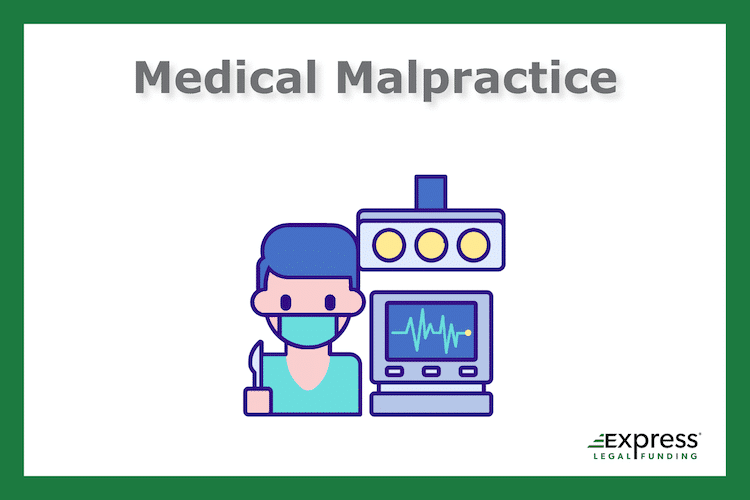
Negligent Torts Are a Common Lawsuit Type
These three tort subcategories are increasingly common legal issues and represent some of modern Americans’ most serious problems.
Given the modern dependence on companies and major medical facilities, medical malpractice and product liability suits are becoming more common.
They are crucial and a part of life. As long as personal injury lawsuits are allowed, they will likely continue throughout human history, especially since operating motor vehicles are common in public areas.
When these incidents fall into the category of gross negligence, the need to recover is more important since the physical harm and damage are typically worse and improve our ability to file and win a lawsuit.
You Should Consider Hiring a Personal Injury Lawyer
When you are hurt due to someone else being negligent (or grossly negligent) and at fault, the best thing to do from a legal perspective is to hire a “no win, no fee” lawyer to represent you and give you legal advice.
Filing a Gross Negligence Lawsuit
Personal injury lawyers often try to use gross negligence as a reason for bringing a lawsuit against a defendant.
It can strengthen the injured victim’s case and help them recover more money for their clients to help pay for medical expenses and property damages incurred in the accident.
Additionally, attorneys in some cases of gross negligence can help plaintiffs get punitive damages on top of compensatory damages, which means more money from the lawsuit.
Although hiring a law firm to help file a lawsuit is relatively simple, it is a lot more complicated to prove it was gross negligence and not ordinary negligence by the defendant.
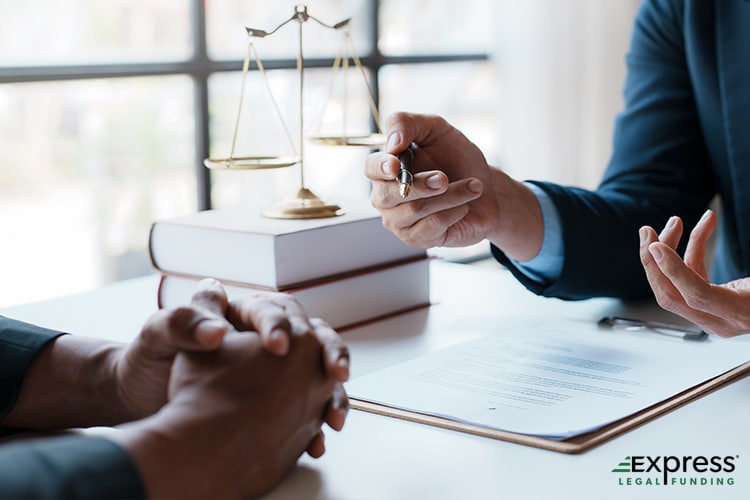
Higher Burden of Proof
So if you are a victim of gross negligence, it is never as simple as filing a claim and collecting a settlement check.
The burden of proof is higher and falls on the plaintiff to fulfill, so you must be prepared to corroborate your claim with enough pruebas to prove the defendant willfully risked your safety when causing the accident.
Gross Negligence in Personal Injury Cases
Most of the evidence used in a gross negligence lawsuit pertains to the personal injuries you sustained because of the incident. For example, getting into a car or truck accident caused by gross negligence requires the plaintiff to prove the following:
- You must prove that the defendant is the at-fault party and is liable for the accident.
- Furthermore, you must prove that the auto accident was caused by the other driver driving recklessly.
This same concept also applies to cases involving a slip-and-fall accident at a private business and requires the same evidence to prove gross negligence.
Plaintiff Must Prove Defendant Was Aware of Hazard
The difference is that you must prove that the business owner knew about and ignored a potential hazard. For example, if a heavy ceiling light was coming loose, and the owner willfully neglected to repair it after they became aware of the issue.
If that light falls on a customer, the business owner is liable for the injuries because it was their responsibility to keep their property in good condition.
Knowing the flaw exists and refusing to repair the issue elevates the scenario to gross negligence.
How to Prove Gross Negligence?
Proving gross negligence can be challenging depending on the circumstances since the details that show someone had gross negligence are not easy to access. Nevertheless, lawyers do prove it regularly.
Gross Negligence Example Cases That Are Easier to Prove
Some cases are easier to prove gross negligence than others due to the type of evidence being easier to produce.
Drunk Driver Car Accident Cases
For instance, proving a driver was drinking and driving when they caused a car accident can be straightforward since there is a good chance the EMTs and police who arrive at the car crash scene can quickly realize a drunk driver was involved, which can act as evidence (police report, breathalyzer results, or police testimonio) for you to prove gross negligence.
If they arrest the intoxicated driver for a DUI and successfully convict them, it will make it easier to prove that the driver who caused the wreck was grossly negligent.
Car Accidents Caused by Speeding
The same thing goes for a speeding driver going 30 miles over the speed limit hard. Speeding way over the speed limit is hard to go unnoticed, especially on roads with lower speed limits (i.e., a school zone with a 15 mph speed limit).
In addition to eyewitnesses and your car’s body damage to your car, most cars have a black box known as an “event data recorder,” which documents the speed of the car before and during a crash (and other info: acceleration, braking, if airbags were deployed).
Your lawyer can get this info during the case’s discovery phase and use it as evidence in court to prove gross negligence.
Slip-and-Fall Gross Negligence Cases Are Harder to Prove
Unfortunately, proving there was gross negligence for a slip-and-fall case involving property disrepair and an owner neglecting to fix it is more challenging.
For the issue of the owner’s negligence, you have to get statements from the property’s staff and even get their email communications about maintaining the area to determine whether gross negligence was behind the disrepair that caused your injury.

Ultimately, once evidence of gross negligence is discovered, your personal injury attorney has a better chance to file a successful lawsuit on your behalf. The question remains how much can you win from a gross negligence case?
How Much Can I Win in a Gross Negligence Lawsuit?
Many factors go into determining how much money you can win from a personal injury case with gross negligence, including the following:
- Cost of your medical expenses.
- Insurance policy limits.
- If you can sue for punitive damages.
Since a personal injury claim is associated with most gross negligence cases, one of your primary resources to maximize your liquidación is a comprehensive list of your medical expenses resulting from the defendant’s negligent behavior.
One of the main goals of a personal injury attorney is to secure a settlement from the defendant to compensate their client for the damages they sustained without having to go to trial. In most personal injury cases, the liquidación is primarily based on the total cost of medical treatment the incident generated.
That is because most personal injury settlements prioritize the cost of medical treatment to avoid leaving the victim indebted for medical care they would not have needed if the negligent party performed their standard of care.
In cases of gross negligence, the settlement calculations are not significantly different.
Some gross negligence lawsuits are likely to be worth more than others and generate higher settlement amounts, for instance, if it is a wrongful death lawsuit for the medical malpractice death of a loved one or a chain reaction car accident (with multiple commercial insurance company defendants), mental pain and suffering traumatic brain injury (TBI) cases, and so on.
Ultimately, you will likely see a higher settlement offer than you would get in standard personal injury claims involving ordinary negligence since you may be awarded punitive damages at trial.
Average Gross Negligence Settlement Amounts
Generally, the average gross negligence claim settlement is more than $250,000.00. Still, depending on the circumstances, your settlement could be worth less than that or even several millions of dollars (albeit much less common).
Once your case progresses, your law office may be able to set your expectations of what reasonable gross negligence settlement amount you can expect.
However, it is unrealistic for them to make you any hard guarantees.
Typically, the higher amount your medical expenses cost you, the higher the settlement amount you can receive. Although other factors can increase or decrease the amount, like the insurance policy limits on the defendant’s part.
Closing Statements on Gross Negligence vs. Negligence
Although gross negligence claims are less common than negligence cases, they are a significant issue that must be considered.
By filing a gross negligence claim, you are accusing the defendant of recklessness which makes your case more complicated and take longer than the typical personal injury lawsuit.
Nevertheless, that does not make your lawsuit any less valid; instead, it is a way to recover more money for the injuries you suffered than a simple rear-end accident lawsuit with only two cars.
Just because you can file a civil claim and sue for money, that does not mean your situation will be easy. Most often, it is quite the opposite during a gross negligence lawsuit.
When you suffer a severe injury, it will lead to your incurring unexpected costs and lost wages, which can quickly put you in a situation of overdue bills and late payments.
All of this makes it challenging to maintain your standard of living while you wait on the slow-moving lawsuit process putting you in need of money now and can’t wait for a settlement situation.
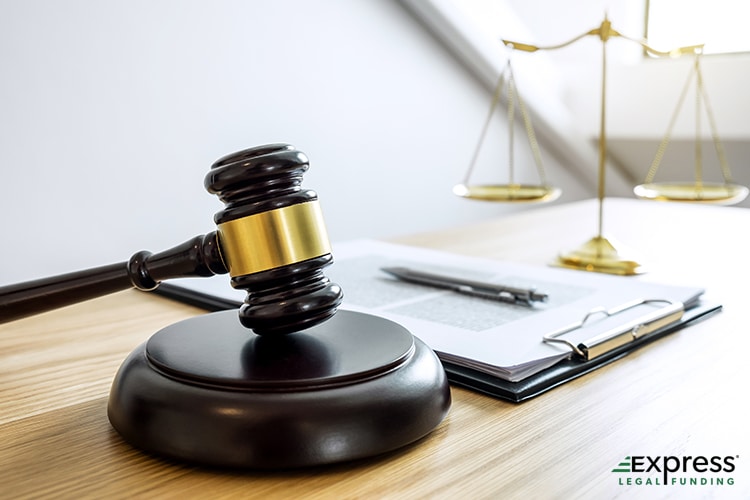
You Can Apply: Pre-settlement Funding for Gross Negligence Lawsuits
Nosotros en Express Legal Funding, a Plano, TX-based pre-settlement company, recognize this reality and the difficulties it can cause you.
That is why we can provide legal funding during the entire pre-litigation and litigation process to help you maintain financial solvency while coping with sudden medical bills and the increasing general cost of living.
Pre-settlement lawsuit funding allows you to access your potential settlement early and risk-free. We accomplish this by advancing your cash funds in exchange for a portion of what you will receive when your case is successful.
It’s a purchase agreement between a buyer (Express Legal Funding) and a seller (you, the plaintiff), so you can have some of your settlement money now when you need it.
We place the lien on your potential case proceeds and not you, the client, when you choose to get approved legal funding, which means it is not a loan and since we only require repayment if you win or settle your claim.
Getting a pre-settlement cash advance from us means you can get money from your existing claim now and later when your case ends.
You can apply confidently, as when we work to get you approved, you work directly with us from start to finish because we are direct funders (not a agente de financiación jurídica, which cost you more in the end).
If you need financial assistance during your lawsuit, call us or apply online 24/7 to get approved for a free consultation and legal funding case evaluation!
(Important details Missouri consumers: The pre-settlement financing we can provide to injured and damaged claimants in Missouri are pre-settlement loans. The loans are not the same as non-recourse pre-settlement advances.
Pre-settlement lawsuit loans in states like Missouri are recourse loans and must, technically, by law, be repaid to the lender in MO. Express Legal Funding-Missouri, LLC is a licensed small consumer loan company in Missouri.)
